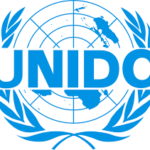By Asma’u Ahmad
The United Nations Industrial Development Organisation (UNIDO) has urged relevant government agencies to increase their surveillance roles toward improving global perception of Nigerian products and services.
A UNIDO Food Safety Expert, Mr John Tehinse, made the remark on Wednesday in Enugu during an induction/awareness training on basic principles and significance of food safety.
The training was organised for food and non-food handlers in farming, food services and manufacturing, consumer associations and other stakeholders.
 He said UNIDO had observed that global perception of products and services in Nigeria was poor “and we wished to play a significant role in removing such negative perception through such trainings.” According to him, it is sad that enforcement agencies in the country lack the capacity to fully discharge their mandates.
He said UNIDO had observed that global perception of products and services in Nigeria was poor “and we wished to play a significant role in removing such negative perception through such trainings.” According to him, it is sad that enforcement agencies in the country lack the capacity to fully discharge their mandates.
Mr Tehinse assured that with such trainings and the calibre of people it targeted, the task of improving global rating of Nigerian products would be achieved.
The Minister of Health, Prof. Isaac Adewole, said on the occasion that food safety had become one of the major topics in the health sector due to the impact of unsafe foods.
Professor Adewole, represented at the event by Mrs Anthonia Okpara, an official of the ministry, noted that World Health Organisation (WHO) had estimated that food-borne illnesses occurred at the ratio of one in every 10 persons.
“This is especially in children less than five years and the elderly. WHO, African region, also reported 91 million cases of food-borne illnesses with 137,000 deaths yearly.”
The minister said that Nigeria had been plagued with preventable food-borne disease outbreaks such as cholera, typhoid fever, Lassa fever, methanol and lead poisoning. “All these diseases are general consequences of poor food safety culture and hygiene practices in Nigeria,” he added.
Prof. Adewole said food-borne disease outbreak could have significant impact on food industries and processes involved in the food supply chain.
He said: “These unwholesome practices are part of the gaps that have been identified and are being addressed by Food Safety through the implementation of National Policy on Food Safety and Implementation Strategy (NPFSIS). A training of this nature becomes appropriate, and is part of the implementation of the policy.”




